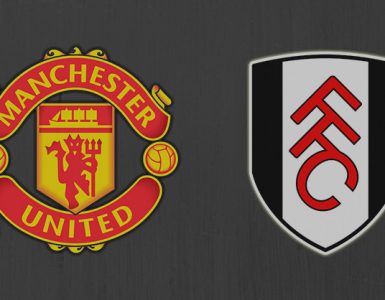The state is no longer requiring fully vaccinated people to wear face masks in most situations under rules Gov. J.B. Pritzker issued Monday, putting Illinois in line with new federal guidance that caught many by surprise last week.
The change to the state mask mandate that went into effect more than a year ago comes after the Centers for Disease Control and Prevention put out new guidelines Thursday that said people who are two weeks past their final coronavirus vaccine dose can safely resume most of their pre-pandemic activities without wearing a mask.
The quick change in guidance from the federal government resulted in confusion over the weekend in Illinois as the Pritzker administration said the state’s rules would change but took a few days to make it official.
“One of the reasons that the CDC issued the rules as they did was the recognition that studies have now been done showing that if you’re vaccinated, you’re protected,” Pritzker said at an unrelated event Monday before the new rules were announced. “If you’re unvaccinated, you are not protected. So I encourage people who are unvaccinated still to wear their masks but to go get vaccinated because I think we all want to get past this we all would like to take off our masks.”
What’s allowed as Illinois and Chicago reopen: The rules for restaurants, gyms, concerts, conventions and more »
The potential for confusion remains — Chicago Mayor Lori Lightfoot said Monday that the city needs more information before changing its rules on masks. Later, the city’s health department issued a statement saying that Chicago would “broadly align” with the state and CDC rules, but its more stringent masking requirements would remain in place for now. Officials said more details would be provided Tuesday.
The state on Friday entered the next-to-last phase of Pritzker’s reopening plan, with increased capacity limits on a wide range of businesses and activities. If COVID-19 cases and hospitalizations continue to hold steady or decline, the state will fully reopen June 11.
Pritzker said when it comes to wearing a mask himself, he would “take it gently and carefully going forward.”
“But I do think that the CDC guidelines are good ones, and we will follow them in Illinois,” he said.
Cities are allowed to have rules that are stricter than those issue by the state or federal government, and Chicago has not yet said when its mask mandate will be revised to align with the new federal guidance. Businesses also are free to continue requiring masks.
The CDC guidelines don’t apply to health care settings, and people are still required to wear masks while riding trains, buses, planes or other forms of public transportation, as well as at airports and bus and train stations. Masks also still will be required in schools, day cares, corrections facilities and shelters.
The state also is rescinding an emergency rule that allowed businesses to be fined up to $2,500 for failing to enforce mask requirements and social distancing rules. The governor’s office did not respond to a request for comment on how many businesses were fined as a result of the rule, which had been in place since August.
Lightfoot said during an unrelated news conference Monday that she thinks “some clarification is needed” from the CDC. The mayor also said she plans to continue wearing a mask indoors and in some outdoor situations in which she is uncertain whether folks around her have been vaccinated.
“It’s great to say you don’t need to wear masks if you’re fully vaccinated, but that raises a whole set of questions that I think, perhaps, they didn’t clearly anticipate,” Lightfoot said. “So I think some clarification is needed and I expect that to be coming soon.”
Lightfoot said during an earlier appearance on MSNBC that social distancing will continue to be important. The mayor has said previously that she’s hoping to reopen Chicago without capacity restrictions by July 4.
“The virus is still here, the virus is still real, we’re still seeing deaths every day, so we can’t afford to feel like the virus is gone and suddenly we can just go back to 2019,” Lightfoot said.
“I don’t want to have people lulled into a false sense of security that simply because some folks are vaccinated, that it’s all good, and we don’t need to do anything more. We have a lot more that we can do,” Lightfoot said.
“And I think what you’re going to see, certainly over the course of the summer and fall, maybe even going into next year, other opportunities to incentivize folks to get vaccinated — whether it’s special entry to restaurants, places of entertainment, outdoor venues, maybe even sports attractions,” she said.
The mayor said she expects the city’s travel order, which places restrictions on visitors to Chicago from certain parts of the country, to go away “soon.”
The CDC guidelines for individuals “is being interpreted more broadly as permission to eliminate mask mandates,” the letter states.
“Without a state mask mandate, our essential workers and businesses, who have been foundational to ensuring services remain open for everyone during this pandemic, lose the power to enforce masking indoors, and have to rely on an honor system for masking, a system that is easily exploited,” the group wrote.
The change creates a difficult situation for businesses, which are largely being left on their own to figure out how to police who should be required to wear a mask.
Pritzker has rejected the idea of requiring a vaccination passport, though state officials talked about developing an optional one.
The major change mask rules comes as Illinois continues to see positive trends in its efforts to curb the spread of the coronavirus.
State health officials reported 946 new confirmed and probable cases of COVID-19 Monday, the lowest since 782 cases were reported March 15 and only the second time this year that there have been fewer than 1,000 cases recorded in a single day.
While case counts have been declining, the latest batch resulted from just 33,148 tests, well below the seven-day testing average of 60,895, though there often are fewer test results reported on weekends.
Nonetheless, the seven-day average of new cases is 1,487, the lowest since an average of 1,483 was reported July 31. The number had recently fallen as low as 1,511 in mid-March before the recent surge.
Officials also reported six additional fatalities, the lowest count since five deaths were reported March 29.
New coronavirus cases, deaths in Illinois dip to lowest levels in many weeks »
As of Sunday, statewide case positivity rate — the percentage of new cases as a share of total tests — was at a seven-day average of 2.4% for the third day in a row, the lowest since the same rate was reported March 18.



























